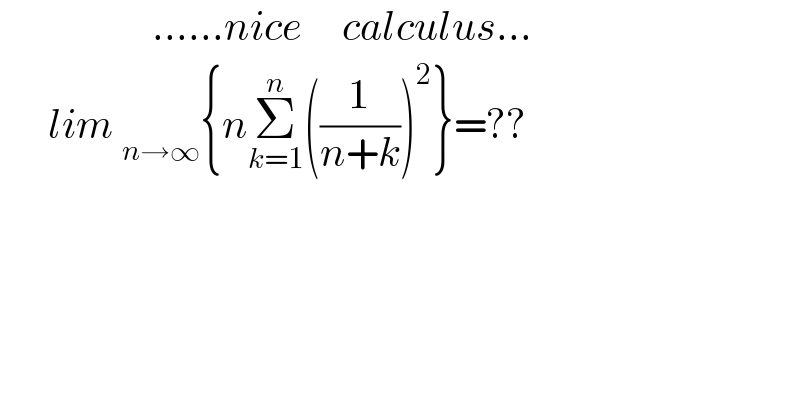
Question Number 133181 by mnjuly1970 last updated on 19/Feb/21

$$\:\:\:\:\:\:\:\:\:\:\:\:\:\:\:\:\:\:\:......{nice}\:\:\:\:\:{calculus}... \\ $$$$\:\:\:\:\:\:{lim}\:_{{n}\rightarrow\infty} \left\{{n}\underset{{k}=\mathrm{1}} {\overset{{n}} {\sum}}\left(\frac{\mathrm{1}}{{n}+{k}}\right)^{\mathrm{2}} \right\}=?? \\ $$
Answered by Dwaipayan Shikari last updated on 19/Feb/21

$$\underset{{n}\rightarrow\infty} {\mathrm{lim}}{n}\underset{{k}=\mathrm{1}} {\overset{{n}} {\sum}}\frac{\mathrm{1}}{\left({n}+{k}\right)^{\mathrm{2}} }=\frac{\mathrm{1}}{{n}}\underset{{k}=\mathrm{1}} {\overset{{n}} {\sum}}\frac{\mathrm{1}}{\left(\mathrm{1}+\frac{{k}}{{n}}\right)^{\mathrm{2}} }=\int_{\mathrm{0}} ^{\mathrm{1}} \frac{\mathrm{1}}{\left(\mathrm{1}+{x}\right)^{\mathrm{2}} }{dx}=\frac{\mathrm{1}}{\mathrm{2}} \\ $$
